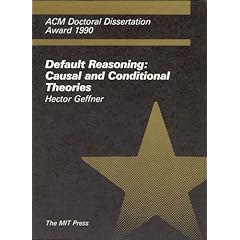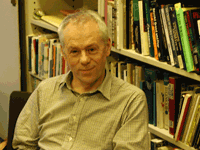AI at 50
From Programs to Solvers, Models and Techniques for General Intelligence

4pm, Wednesday, 5 December 2007
Psychology Lecture Theatre F21,
7 George Square, Edinburgh
Over the past 20 years, a significant change has occurred in AI research. Many researchers have moved from the early AI paradigm of writing programs for ill-defined problems to writing solvers for well-defined mathematical models such as Constraint Satisfaction Problems, Strips Planning, SAT, Bayesian Networks and Partially Observable Markov Decision Processes.
Solvers are programs that take a compact description of a particular model instance (a planning problem, a CSP instance, and so on) and automatically compute its solution. Unlike the early AI programs, these are general-purpose in the sense that they are not designed to deal with a particular problem but with a large, in fact, infinite collection of problems.
This presents a crisp computational challenge: how to make these solvers scale-up to large and interesting problems given that all these models are intractable in the worst case. Work in these areas has uncovered techniques that accomplish this by automatically recognizing and exploiting the structure of the problem at hand.
My goal in this talk is to articulate this research agenda, to go over some of ideas that underlie these techniques, and to show the relevance of these models and techniques to those interested in models of general intelligence and human cognition.

Hector Geffner is a Distinguished Visiting Researcher in the School of Informatics, and a recently elected Fellow of AAAI. He was a student of Judea Pearl, and won the ACM Distinguished Dissertation Award in 1990. Hector has worked at IBM (Yorktown Heights, NY, USA) and the Universidad Simon Bolivar (Caracas, Venezuela). He is currently a researcher at the Institucion Catalana de Recerca i Estudis Avançats (ICREA) and a professor at the Departamento de Tecnologia, Universitat Pompeu Fabra, where he heads the Artificial Intelligence Group.
Labels: artificial intelligence, distinguished, edinburgh, geffner, informatics, lecture


